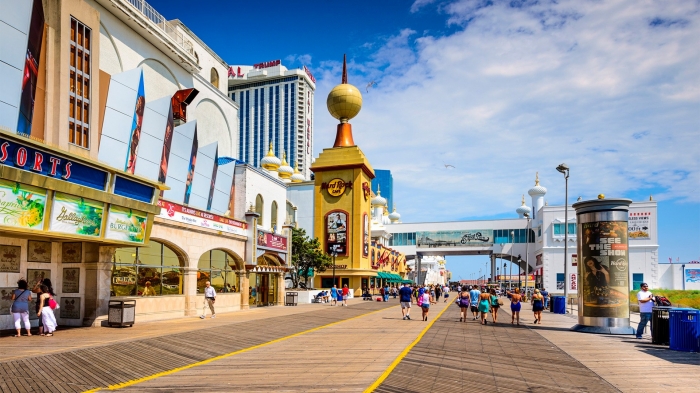T
he New Jersey Assembly Appropriations Committee approved on Thursday morning legislation permitting casinos and racetracks to deduct promotional gaming credits from gross sports betting revenue above certain thresholds from being taxed.
The A4022/S2257 bill allows for the operators to deduct gross revenue above $12 million (online/mobile) and $8 million (in-person/retail) generated from either free or promotional wagers used by customers, the Press of Atlantic City reports.
Assemblyman Ralph Caputo, D-Essex, the bill’s primary sponsor and a former Atlantic City casino executive, said the state’s casinos and racetracks “have suffered significant losses due to necessary closures and restrictions during this pandemic.”
“At a time when many of these businesses are struggling to stay afloat and keep their workers employed, we need to help relieve any undue burden on the industry,” Caputo said in a news release. “This bill will allow these businesses to deduct revenue from free wagering credits given out to entice new players. It’s only fair casinos and racetracks be taxed on their actual sports wagering revenue and not a larger, inaccurate number that would increase taxes owed to the state.”
Casino-related taxes and fees are allocated to a variety of state programs and agencies, but a bulk of the money goes to the Casino Revenue Fund. The fund is statutorily mandated to be used for programs benefiting seniors and the disabled.
A financial estimate of the proposed bill conducted by the nonpartisan Office of Legislative Services concluded that funding to the CRF would be reduced but could not determine an amount. OLS further stated, “For each $1 million in promotional gaming credits that a (casino or racetrack) permit holder can deduct against gross revenue because of this bill, the state revenue loss would be roughly $100,000 to $150,000” when accounting for the two different tax rates applied to internet/mobile and retail sports betting.
The bill requires the state Division of Gaming Enforcement to provide regulations to ensure the deductions from promotional gaming credits do not result in a negative fiscal impact to the CRF or the state’s General Fund.
Atlantic City’s finances also would be impacted by the proposed bill because of the casino payment-in-lieu-of-taxes, or PILOT, legislation. The amount of taxes paid to the city by the nine casinos is directly tied to the industry’s annual gross gaming revenue. Any reduction in reported gross gaming revenue would lessen the amount paid to Atlantic City.
The bill held Thursday by the Assembly committee was passed by the state Senate in June with amendments that reduced both the time and scope of any proposed tax breaks for the casino industry.
Steve Callender, regional president of Caesars Entertainment Inc. and president of the Casino Association of New Jersey, said after being closed for nearly four months (March 16 to July 2), the industry is hurting. Prior to the mandatory shutdown, Atlantic City’s casinos had reported 21 consecutive months of year-over-year gaming revenue growth. The industry reported a $112 million operating loss during the second quarter of 2020 as a result of the shutdown.
Callender characterized this year as a “critical” time in the industry’s history and said he believed the tax incentives would make a difference.
“We need it because we want to get back to the numbers that we were achieving before and would like to be at,” Callender said. “We’d like to bring more team members back to work, which is important to us.”
No explanation was given Thursday as to why the bill was pulled, but it is expected that the legislation will be further amended to include racetracks.
A third piece of COVID-19 emergency legislation that would require the state Treasury to extend interest-free loans to casino operators has been stalled since June.



